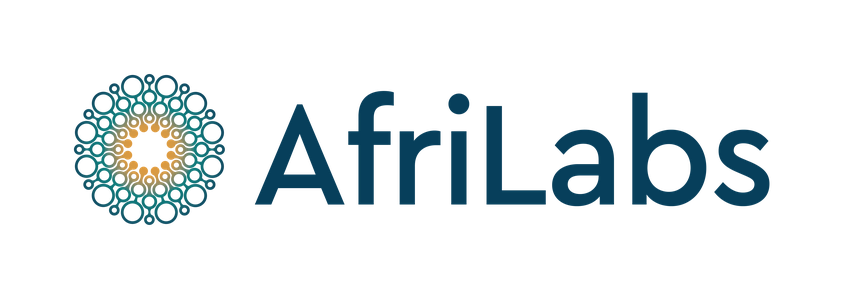To highlight the ever-growing and diversified community of the AfriLabs network, we are pleased to introduce our new series on our community and their impact in their respective countries.
Today’s country in focus, Kenya, is arguably the second-largest innovation ecosystem on the continent and hosts 2 of the 5 founding member hubs of the AfriLabs network, iHub and Nailab. The swift rise of the Kenyan ecosystem can be attributed to several catalysts.
In October 1995 the first leased line connection was established in Kenya providing Internet for the first time. At 32 Kbps, Kenya was at last connected to the Internet, and the dream of information sharing became a reality. Shortly thereafter and in quick succession, two ISPs serving the commercial and personal markets—Africa Online (Prodigy USA) and Form-Net—started offering service, and for the first time, competition entered the market. By the end of 1995, the two each had a 64-Kbps link and 100 lines to serve their clientele. This opened a floodgate of other operators, and by the end of 1995, more than 10 were advertising for services and reported accounts totalled approximately 5000.
The organisation of the technology and innovation ecosystem through bodies like Technology Service Providers of Kenya,TESPOK in 1999, Skunkworks Kenya in around 2006, and the Kenya ICT Action Network,Kictanet, in around 2007, meant that communities of innovators and service providers were beginning to self regulate, challenge each other and collaborate.
Forward-thinking public sector officials like Bitange Ndemo were also critical catalysts for the ecosystem. Ndemo pushed for various ICT policies and projects such as the installation of the undersea submarine cables, the development of business process outsourcing industry, the reduction in mobile termination rates, initiating Kenya Open Data and so on.
Well-known M-Pesa bridged the gap between banked and unbanked and made payments easier contributing to a foundation for several impactful service delivery products across the country.
The arrival of the undersea cable in 2009 began to bring down the costs of connectivity making the internet more accessible to Kenyans and lowering a critical barrier to innovation.
2010 saw the beginning of the rise of the hubs with iHub, Nailab and others. Kenya currently boasts close to 70 innovation centres with 23 of those being AfriLabs members. Among them are Lake Hub in Kisumu, Eldo Hub in Eldoret, Villgro in Nairobi and Sote Hub in Voi.
Lake Hub was started in 2013 as one of the first tech innovation and incubation hubs running outside of Nairobi. Through Lake Hub’s programs and activities over 5,000 youths have benefited directly from technology skills workshops, startup mentorship, entrepreneurship training programs, and networking events. The Lake Hub Academy has trained 120 young professional software developers, 55 of which have gotten employment as a result of the training. This has unlocked USD 1,170,000 annual recurring income for the youth. 5 have started their own startups and 40 are involved in freelance work.
Lake Hub’s Incubation program has provided business incubation services to 50 entrepreneurs enabling the launch of 25 startups solving across sectors including the circular economy and agri-food. The program has also unlocked financial investment for 9 startups.
Using digital technology, Sote Hub trains students at rural high schools and out of school youth (often marginalized with less opportunity for career progression or technology) on jobs, career preparedness; support them establish startups where they create products/services and test with real customers.
Over the last four years, Sote Hub has trained 10,000 youth/students, provided job matching to 700, incubated 40 startups with over 60% being women-led.
Villgro Africa is one of our newest members. They are an early-stage business incubator and impact investor that seeks to support startups with a global social impact focus in the African region. Villgro’s portfolio is a blend of medical diagnostic devices, healthcare systems and technologies.
Since 2015, Villgro has supported over 20 startups in getting over USD 700,000 in investment and in impacting over one million lives.
Finally, Eldo Hub, which began operations in 2017 has focused on offering skills and employment to youth, women and micro, small and medium enterprises in the rural areas.
To date, EldoHub has impacted over 3000 youth and women between the age of 18 to 35 years through workshops and events, community, incubation and capacity building. They have supported over 1,150 youth through training and capacity building, conducted over 100 events and established 12 partnerships and collaborations. They have also supported 597 women and girls, and 68 entrepreneurs through three 12-week innovation workshops.
Through their jobs placement and digital apprenticeship program, Eldohub has placed 40 junior tech professionals to 40 SMEs/Techstartups/Scaleups or traditional businesses looking to digitize their business processes.
It’s apparent that one of the strengths of Kenya’s ecosystem is the decentralisation of innovation by strong impactful innovation centres across the country.
In 2019, this ecosystem achieved yet another great feat by coming together to form the Association of Startup and SMEs Enablers of Kenya (ASSEK) thereby ensuring that the right support for innovation and innovators and entrepreneurs is within reach and is coordinated for greater impact. AfriLabs currently has a partnership with ASSEK to establish a general framework of cooperation to facilitate collaboration between the parties.
It’s worthwhile to note that AfriLabs is also working closely with Strathmore University, a leading academic institution in Kenya to develop a Full Hub Management Certification Course for the AfriLabs Capacity Building Program.
Kenya is indeed a leading hub for innovation and entrepreneurship in Africa and innovation centres are greatly contributing to this along with growing investor interest and a wider ecosystem jointly working to coordinate its work. There is a lot of potentials that we look forward to exploring at AfriLabs. To learn more about our community of innovation centres impacting Africa, subscribe to our newsletter here.
